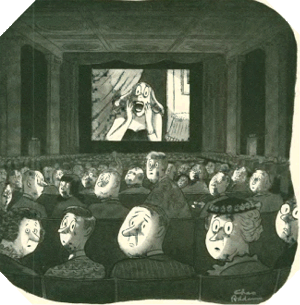 |
| Sublime noble serenity |
The noble Indian pictured here in full native regalia is the legendary Sitting Bull, a Sioux war chief during the years of resistance to United States government policies in the latter 1800s. This remarkable photograph was taken in 1885. He was to die violently five years later at age 59, apparently in a bungled arrest attempt, but more likely part of a deliberate elimination scheme by government authorities bent on suppressing every last remnant of native Indian resistance to a land grab of unprecedented proportions. It was the end of a remarkable life full of trials and tribulations, sadness, and tragedy.
 |
| A surly youth |
Sitting Bull gained lasting notoriety in the infamous battle at
Little Big Horn (1876), in which
General George Custer (1839-76) [pictured right striking a strident pose as a cadet at 20] and his entire contingent of some 300 men were annihilated. The battle (
"Custer's Last Stand") came to symbolize the conflict between new settlers and native Indian culture over lifestyles, land, and resources. The incident itself was nothing but a side-show compared to the willful slaughter of hundreds of starving, desperate native Indians who were being harassed by the likes of many a Custer. These self-styled agents of American “progress” marauding about in territory considered sacred by native Indians and solemnly promised to them in perpetuity in sham treaties, pillaged and killed innocents wherever they could be found, at will and with impunity.
Sitting Bull’s leadership skills and resilient dignity proved to be such a powerful obstacle to federal forces endeavouring to break Indian resistance that attempts to persuade them to sell their land were made in order to save the government the embarrassment of having to break treaties to get it. The attitude of the Indians was captured in a defiant gesture by
Sitting Bull, picking up a pinch of soil and releasing it to the wind.
“I want you to go and tell the Great Father that I do not want to sell any land to the government – not even as much as this.” With regal contempt, he taunted government bureaucrats who demanded the turnover of coveted land for
“acting like men who have been drinking whiskey”.
Although they were definitively not beaten on the battlefield, the Indian people were eventually broken through terror, political pressure, and the relentless logic of demographics, and finally reduced to abject poverty and starvation. The Americans were too numerous to repel, their government too powerful to resist, their rulers entirely without pity or scruple. Indians were subjected to harsh government controls over every aspect of their individual sovereignty. They suffered the indignity of having to accept government handouts just to survive and then insulted with the thought of needing to be grateful for it.
For his defiance,
Sitting Bull was upbraided to his face by a powerful republican senator from Illinois,
John A. Logan (1826-86) who was also a Presidential hopeful at one point, and whose legacy is still recognized by several prominant statues sprinkled throughout the land. His arrogant diatribe delivered to a totally defeated yet still proud
Sitting Bull was nothing short of a mean-spirited bigoted totalitarian rant:
 |
| A mean-spirited bigot |
“You are not a great chief of this country. You have no following, no power, no control, and no right to any control. You are on an Indian reservation merely at the sufferance of the government. You are fed by the government, clothed by the government, your children are educated by the government, and all that you have and are today is because of the government…. The government feeds and clothes and educates your children now, and desires to teach you to become farmers, and to civilize you, and make you as white men.”
... and thus was ushered in the birth of the
American Empire (quite literally, because it was a term used unblushingly in triumphalist literature of the period) which now girded the entire North American continent, its rulers ominously free to confer the blessings of civilization on untutored masses beyond its shores. [
http://thewaywardtycoon.blogspot.com/2009/10/blog-post_05.html]
In striking contrast, the sublime noble serenity of
Sitting Bull so delicately captured in the photo [top] conveys a tale of a vanished way of life and a proud people unceremoniously and cruelly wiped out ... a shameful loss, but just the way things are when there is unbridled growth and mindless exploitation, rife with ignorance and careless insensitiviy to consequences.

































